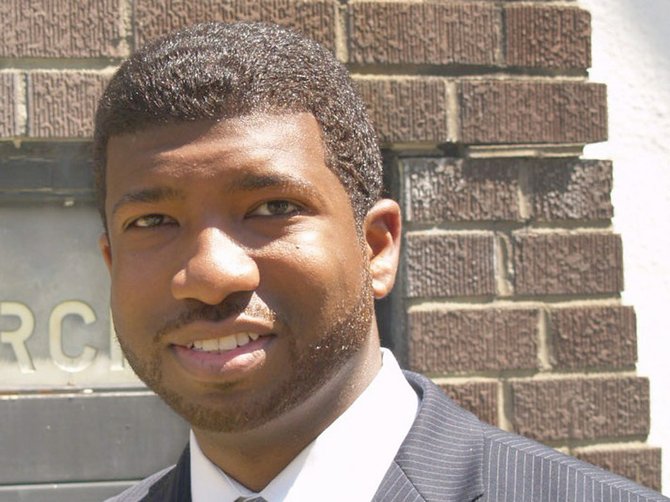When the Rev. CJ Rhodes told his professor he wanted to study philosophy, he was met with surprise. His professor assumed that someone with Rhodes' Baptist and Pentecostal background wouldn't be interested in thinking deeply and philosophically about religion--that only aspiring Catholic or Anglican theologians did that.
Rhodes sees himself as "kind of a public theologian or philosopher," however, who can challenge the mistaken perception that Baptists are not interested in thinking philosophically about their faith. He also hopes to encourage the members of Mt. Helm Baptist Church, where he is the pastor, to take a greater interest in theology.
Rhodes spoke at this morning's Friday Forum at Koinonia Coffee House where he outlined his vision for how the church should help Jackson.
"During the Civil Rights Movement, people used to valorize the church," he said. Some people who have studied that period of history estimate that only about 3 percent of the churches were involved in the Civil Rights Movement, but that relatively small group of people dramatically changed the city.
"We can't be naive, though; the churches are populated by the people who need to change," he added.
One of the ways churches can help Jackson is by having the moral authority to hold politicians accountable for doing the right thing.
"You cannot deny the fact that the gospel, in some measure, is concerned with the least of these," he said. Churches can also call politicians out when they identify themselves as Christians but "bow to mammon--the god of money," he said, and use their votes for whoever will contribute the most to their campaigns rather than for the best policies.
Rhodes said churches should pray for Jackson and politicians, and they should inventory their members' talents and connections to see what resources they already have that could serve the community. Churches and the broader community also need more intergenerational conversations and cooperation if Jackson is to have leaders in the next generation, he said.
In the past few decades, integration has brought challenges as well as benefits, Rhodes said, especially for churches whose members might live in different neighborhoods and for people who don't know their neighbors.
"It was easier for Jonathan to be mentored when everyone on the street knew him and knew his parents," Rhodes said. "How do we get back to mentoring and empowering people who might not be in our own family after integration?"
Christians can help Jackson best by putting the gospel messages they hear from the pulpit into practice, Rhodes said. Too often, churches have the same scandals and fights inside the church as outside.
"Until we get our own houses in order, we can't fix the rest of the house," he said.
Rhodes recently published a book of articles, sermons and essays called "Thy Kingdom Come: Reflections on Pastoral and Prophetic Ministry" (Godzchild Productions, $15).



Comments
Use the comment form below to begin a discussion about this content.
comments powered by Disqus